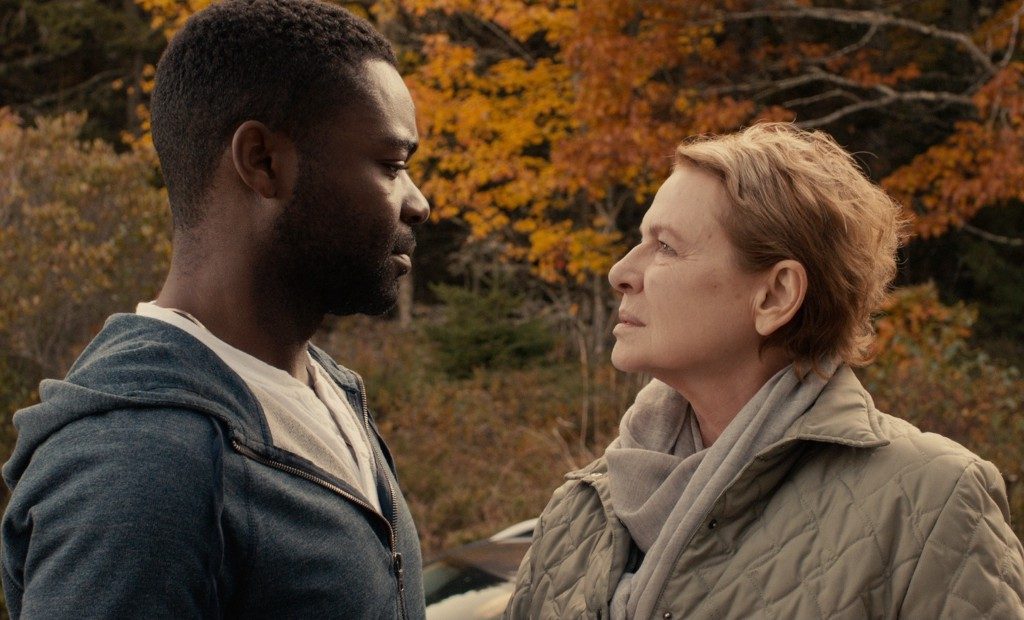Maris Curran received a B.A. from Smith College and an M.F.A. from the Art Institute of Chicago. She directed the short “Margarita.” “Five Nights in Maine” is her first feature. (Press material)
“Five Nights in Maine” will premiere at the 2015 Toronto International Film Festival on September 13.
W&H: Please give us your description of the film playing.
MC: “Five Nights in Maine” tells the story of two people coming together who have worlds between them. By focusing the film on a relationship between a grieving husband (David Oyelowo) and his estranged mother-in-law (Dianne Wiest), there is an obvious initial disconnect. The thread that binds them has snapped.
To me, the most interesting aspect of the story takes place in that space — in the room where these two people negotiate how to treat one another and determine what type of a relationship, if any, they will have. “Five Nights in Maine” is a story about worlds colliding at the kitchen sink. It is about loneliness, frailty and connection, and ultimately, the compassion that comes from opening your eyes to another’s pain in precisely the moment you hurt the most.
W&H: What drew you to this story?
MC: I gravitate to stories that examine the joys and trauma of everyday life — particularly emotional stories that form the fabric of our lives, but might be rarely discussed. For “Five Nights in Maine,” I was interested in the ways that loss can actually bind people together rather than isolate them.
I’ve found that in the U.S., we treat grief as an individual experience that should happen behind closed doors. But in essence, there is little more universal than caring for someone and losing them — even if that loss is not a death. In making this film, I was interested in putting two people who are grieving quite differently together to spark conversations that will ideally continue beyond the film.
W&H: What was the biggest challenge in making the film?
MC: Making a first feature is a challenging endeavor, but financing the film was our single biggest hurdle. It took a creative mindset and diligence to raise money and identify the strategy appropriate to the film. We brought on a combination of granting organizations and equity investors who are very much a part of the fabric of the project.
W&H: What do you want people to think about when they are leaving the theater?
MC: I have found in the process of making the film that people want to share their stories of loss, which are stories of connection. It is my hope that the film will inspire these cathartic conversations.
W&H: What advice do you have for other female directors?
MC: The best advice I can give to a filmmaker is to be true to your voice and make your work. Push forward, be kind, help other filmmakers and honor what makes you special.
W&H: How did you get your film funded? Share some insights into how you got the film made.
MC: We had a hybrid financing strategy. We leveraged soft money through crowdfunding, grants and production and post-production tax incentives. We Kickstarted in development, received grants from Cinereach, the San Francisco Film Society/Kenneth Rainin Foundation and Tribeca, and received our camera package through Panavision’s New Filmmaker Award. We then raised the remainder in equity from a small group of individuals who believed in the project and me as a filmmaker.
W&H: Name your favorite woman-directed film and why.
MC: There are many women-helmed films that I love. I saw Jane Campion’s “An Angel at My Table” when I was young and it affected me a great deal. It showed me the emotional potential of cinema, and it is a film I return to.







